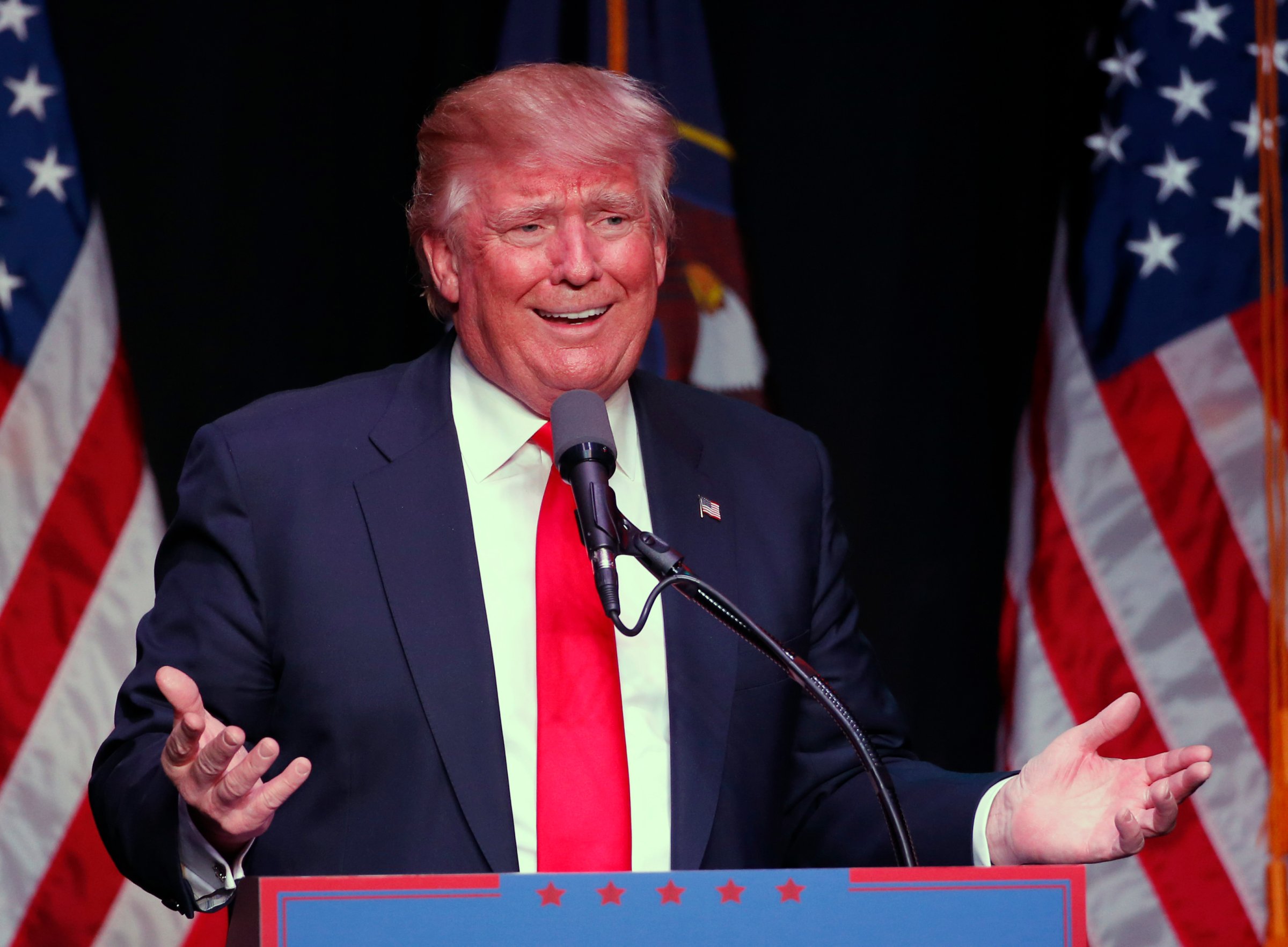
“Griping,” “bitching,” “nagging,” “ballbreaker”: reading through Donald Trump’s 1997 book The Art of the Comeback is like perusing a greatest hits list of words used to undermine and put down women.
In an extract featured on BuzzFeed News, Trump writes:
Often, I will tell friends whose wives are constantly nagging them about this or that that they’re better off leaving and cutting their losses.
He goes on:
For a man to be successful he needs support at home, just like my father had from my mother, not someone who is always griping and bitching. When a man has to endure a woman who is not supportive and complains constantly about his not being home enough or not being attentive enough, he will not be very successful unless he is able to cut the cord.
Quite apart from the obvious “nagging” slur, the words “attentive” and “endure” also speak volumes. Trump’s language creates the impression of a completely one-sided domestic situation, in which the man is the protagonist and the wife a support act, there to “attend” to his needs and frowned upon if she “complains” about her lot. Painting a wife’s behavior as something a man shouldn’t have to “endure” immediately dehumanizes and relegates his partner to a mere circumstantial annoyance, while the phrase “cut the cord” infantilizes a female partner to a dependent, subordinate position.
Later in the same chapter, Trump describes advising a friend to divorce his wife after she complained her husband was: “working too hard and too long and wasn’t devoting enough time or energy to her.” Trump explained: “If he doesn’t lose the ballbreaker, his career will go nowhere.”
Trump’s knack for using gendered slurs to reference wider sexist assumptions has been visible in full force during his campaign for the Republican Presidential nomination. Not least this week, when he effectively dismissed a journalist who had been grilling him in a meeting over his divisive rhetoric, by casually calling her “beautiful” as he left the room.
While moderating a debate last August, journalist Megyn Kelly criticized him for having called various women “dogs,” “fat pigs,” “slobs” and “disgusting animals.” Since then, Trump has doubled down on the sexist rhetoric, using similarly prejudiced language to attack Kelly herself. He has described her as a “bimbo” and a “lightweight,” and repeatedly uses the word “crazy” to describe her.
These words are loaded. They might be simple in themselves, but they carry a widely acknowledged mass of societal assumptions and prejudice. Like Trump’s use of the word “ballbreaker,” which is weighted with associations of man-hating, aggression and selfishness, the words he has recently deployed against the women he considers to be standing in his way are carefully chosen for maximum impact, deliberately playing into and exacerbating existing stereotypes.
By describing Kelly as “crazy,” Trump immediately evokes the tired and familiar trope of the hormonal, hysterical female (further compounded by his explicit comments that when she criticized him at the August debate, Kelly had: “blood coming out of her wherever”).
When he describes her as a “bimbo,” that single word carries sweeping and hugely stereotypical implications for blond Kelly’s entire career, professional performance and intelligence.
Then there are words like “average” and “lightweight,” which also play straight into sexist assumptions about women not being able to compete with men in the professional arena, and subtly reference social stereotypes about women being less likely to excel in the traditionally male-dominated news media.
Meanwhile, the rhetoric Trump uses to describe Democratic frontrunner Hillary Clinton also seems carefully chosen to carry gendered implications, from his declaration, back in December, that when she first ran for President “she got schlonged,” to a tweet last year that said Clinton was “letting her husband out to campaign” for her. The choice of words clearly implied an image of Clinton as a man-trapping, husband-controlling harridan. Another tweet confirmed the trend, using the word “unleash” to similar effect.
The great irony is that rhetoric like this is used intentionally and powerfully to silence women by suggesting that they are reactive and quick to fly off the handle; that they obsess over slights and are self-obsessed; that they focus on minor issues instead of those with substance.
All of which precisely describes Trump’s own behavior.
As long as he continues to attack women using gendered slurs which do nothing to criticize the substance of their positions or engage with their political arguments, Trump is ironically falling right into the exact faults of which he accuses women themselves.
Meanwhile, the women he attacks consistently either rise above the abuse with dignity, or give coherent, intelligent rebuttal. So, as far as I can see, the only person “griping” and “bitching” is Donald Trump.
More Must-Reads From TIME
- The 100 Most Influential People of 2024
- Coco Gauff Is Playing for Herself Now
- Scenes From Pro-Palestinian Encampments Across U.S. Universities
- 6 Compliments That Land Every Time
- If You're Dating Right Now , You're Brave: Column
- The AI That Could Heal a Divided Internet
- Fallout Is a Brilliant Model for the Future of Video Game Adaptations
- Want Weekly Recs on What to Watch, Read, and More? Sign Up for Worth Your Time
Contact us at letters@time.com